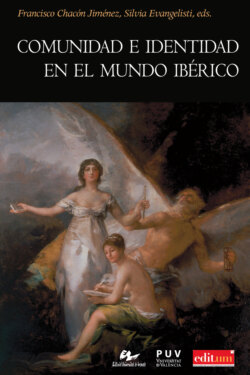Читать книгу Comunidad e identidad en el mundo ibérico - AA.VV - Страница 9
ОглавлениеFOREWORD
Respected authorities, dear colleagues, dear Josyane and Jim, ladies and gentlemen. I’d like to start by apologizing for my poor English pronunciation, but I very much wanted my first words/ to be in English as a tribute to our guest of honour and although our conversations about the history of Spain have always taken place in Spanish, and at times in French, please let me deliver these opening words and welcome message language.
The University of Murcia, together with the University of East Anglia, have organized this gathering of colleagues and friends, who are also deep admirers of professor Casey’s personality and professional work. The occasion is to celebrate his retirement, but this is just a pretext for all of us to engage in academic debates of historiographic proposals, to explore problems and new perspectives in social and political history, and, ultimately, to engage in the necessary reflection on current, crucial issues of debate in history. And we intend to do this with the required depth, relevance, and notoriety, and also from various historiographic angles, perspectives, and positions. This will guarantee diversity and enrichment.
Therefore, we will not just be paying a tribute to a retiring colleague in the traditional way. Rather, «Community and Identity in the Iberian World» is our object of study and our collective meeting space. Our academic programme will revolve around it. It will be a varied and complex academic programme to which English, Spanish, French, Italian and Northamerican historians shall contribute. Ultimately, we shall be dealing with diverse themes of debate, global approaches, social spaces, and family universes.
Yet, the most outstanding outcome will hopefully be that this academic gathering of historians around a Hispanist will allow historiagraphy to transcend its national spaces and integrate itself in transnational territories within a comparative perspective.
Our working programme is guided by the beautiful allegory by Goya: «la verdad, el tiempo y la historia o la alegoría de la Constitución de Cádiz de 1812», which reflects the fleeting nature of time versus the necessary strength and permanence of written history. In a similar way, its historical development has situated Hispanist historiography undertaken in various countries in a space that transcends the theoretical context of the nation state. I’d like to stress that this does not mean that the study of national histories should not be undertaken by authors from other countries. Rather to the contrary, this is always an enriching analysis. However, historiography, Hispanism, and a tribute to an academic have brought us together in a context and an environment that, in my view, goes beyond the traditional and classic Hispanism, and places it, first, in the object of study previously mentioned and, second, in a new perspective and a new view: This is a synthesis between, on the one hand, the history of Spain as seen by Spanish scholars and Hispanists, and, on the other hand, an attempt to go beyond the nation state as the inspiring factor.
Ultimately, it would be a question of overcoming themes of debate enclosed within national spaces, in order to open them to those changes that relations and exchanges have gradually produced. We will attempt to write a new history of Europe that can overcome the mere addition of nations. Furthermore, we will attempt to explore social processes that transcend the boundaries of historical periods and current frontiers. The comparative perspective to be adopted will allow us to discern the similarities, differences, and defining characteristics of such social processes. So, our reflections and debates are intended as a tribute to someone who has so much contributed to rethinking existing topics, to advance new angles for the analysis of diverse themes, including, «moriscos», the emergence of the community and social relations, and, very especially, the family and its social relations, a strand of research in which his contribution has been outstanding throughout his long and productive academic career.
I would like to finish by expressing my gratitude to the University of Murcia, to the Spanish Foundation of Modern History and to the University of East Anglia for their support in putting this whole event together. I would also like to thank you all for your personal and intellectual contributions.
And before I conclude, let me mention Josyane, and Jim Casey’s grandchildren, members of that other family, so crucial for the development of life.
On behalf of Silvia Evangelisti, Jim Casey, thank you very much.
FRANCISCO CHACÓN JIMÉNEZ
Universidad de Murcia
